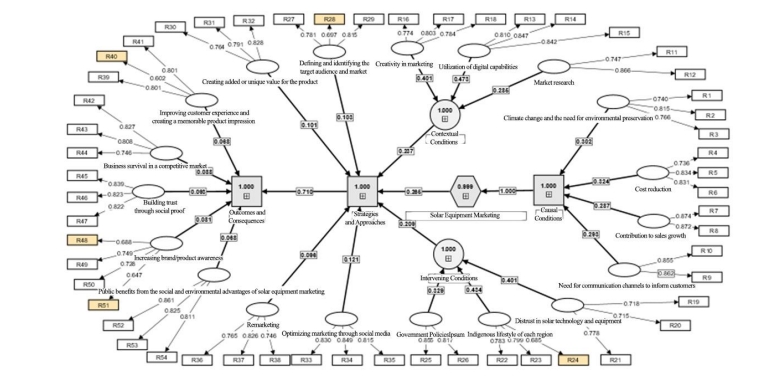Developing a Marketing Model for Solar Energy Production Equipment Based on a Combined Grounded Theory and Partial Least Squares Approach
Keywords:
Marketing, Solar Equipment, Solar EnergyAbstract
The objective of this study is to present a marketing model for solar energy production equipment based on a combined grounded theory and partial least squares approach. In the qualitative part of this research, utilizing a purposive judgment sampling method, the opinions of 15 professors and experts from the Iran Renewable Energy Association, the Iran Renewable and Electric Energy Efficiency Organization, and the Solar Energy Committee of the Scientific and Technological Deputy were utilized. Additionally, in the quantitative section of the study and based on Cochran's formula, opinions from 384 experts related to the research topic were utilized. The data analysis process was conducted in two stages, which included identifying factors affecting the marketing of solar energy production equipment through interviews and the grounded theory approach, and examining relationships, model fitting, and validation through questionnaire instruments and structural equation modeling using the partial least squares approach. The research results indicated that the paradigm model consists of causal factors, including climate change and the necessity of environmental preservation, cost reduction, assistance in sales growth, and the need for communication channels to inform customers; contextual conditions, including market research and the use of digital capabilities; intervening conditions, including distrust in solar technologies and equipment, the indigenous lifestyle of each region, and government policies; effective strategies for marketing advanced solar energy production equipment, including defining and identifying the target audience and market and optimizing marketing through social media; and consequences resulting from the application of advanced solar energy production equipment marketing, including business survival in a competitive market and trust building through social proof.












